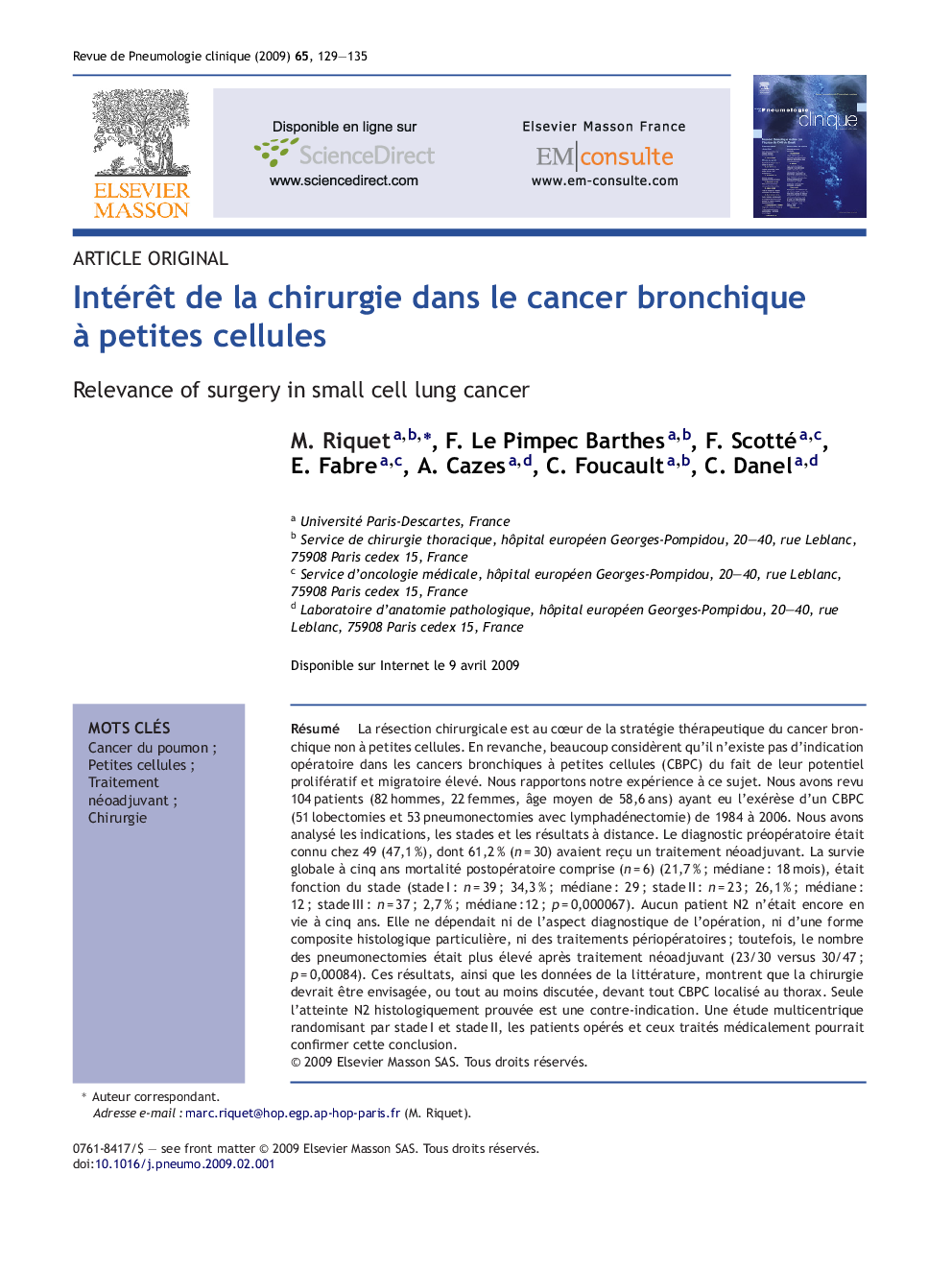| Article ID | Journal | Published Year | Pages | File Type |
|---|---|---|---|---|
| 3419724 | Revue de Pneumologie Clinique | 2009 | 7 Pages |
Abstract
Surgery is the most effective treatment of lung cancer provided that there is complete resection. Even though the results in the early stages of small cell lung cancers (SCLC) are encouraging, many oncologists still consider SCLC a contra-indication. The authors report their experience. They retrospectively reviewed the clinical and pathological characteristics and long-term results of 104 patients (mean age: 58.6, male: N = 82 and female: N = 22) who underwent lung resection with mediastinal lymphadenectomy (lobectomy: N = 51 and pneumonectomy: N = 53) for small cell lung cancer between 1984 and 2006. The diagnosis was established before the operation in 49 patients (47.1%) of whom 61.2% (N = 30) received neoadjuvant therapy. The survival (5-year survival rate 21.7%, median = 18 months), postoperative mortality (deaths: N = 6) included, depended on the stage: stage I: N = 39, 5-year, 34.3%, median = 29; stage II: N = 23, 5-year, 26.1%, median = 12; stage III: N = 37, 5-year, 2.7%, median = 12 (p = 0.000067). There were no 5-year survivors among the N2 patients. The survival did not depend on the diagnostic aspect of the resection, the non-small cell lung cancer histological patterns or perioperative neoadjuvant and adjuvant therapy. The pneumonectomies were more frequent in case of neoadjuvant treatment (23/30 versus 30/47, p = 0.00084). The results and the review of the literature indicate that surgery for small cell lung cancer may provide a cure in stages I and II and should not to be ruled out. The only contra-indication is proven pN2. A multicentre, randomised study on surgery versus medical treatment in the early stages should confirm this conclusion.
Keywords
Related Topics
Health Sciences
Medicine and Dentistry
Infectious Diseases
Authors
M. Riquet, F. Le Pimpec Barthes, F. Scotté, E. Fabre, A. Cazes, C. Foucault, C. Danel,
